
This week I began sitting in on a class on William Blake taught by the great Dr. Paul Cohen at Texas State. We kicked things off by looking at some selections from Songs of Innocence and Experience and listening to different versions of musical settings for them, followed by reading all of The Marriage of Heaven and Hell and Visions of the Daughters of Albion.
I have to admit that Blake was the one English Romantic I hadn’t read carefully up to now. It’s funny, but when I presented a paper on “Keats and Capitalism” a couple years ago at a conference, I made the kind of sweeping statement that one makes in such papers, along the lines of “Keats was the only Romantic to offer a legitimate critique of capitalism in his poetry.” Someone said, “What about Blake?” I mumbled an equivocating response and vowed to go read him, and of course never did.
Now that I’ve finally begun to look at the poems, I definitely should have made mention of Blake. He doesn’t share Keats’s concern — obsession? — with matters of economy, profit, etc., but he’s certainly an incisive social critic whose content overlaps with Keats in some ways. I would say that he’s more concerned with social justice and personal freedom, especially from the bonds of religion and morality, but this naturally leads him into the territory of exploitation and the horrors of the dawning Industrial Age.
Three poems from Innocence and Experience stand out in this regard: The two “Chimney Sweeper” poems, and “London.” The Innocence “Chimney Sweeper” is narrated by a boy who has been sold into the trade by his father after his mother died. He describes how he comforts “little Tom Dacre” after Tom’s nightmare, which depicts the nightmarish conditions of child chimney sweepers in a kind of reverse allegory:
- “…thousands of sweepers Dick, Joe, Ned & Jack
Were all of them locked up in coffins of black,And by came an Angel who had a bright key,
And he open’d the coffins & set them all free.
Then down a green plain leaping laughing they run
And wash in a river and shine in the sun.”
While this evokes the daily grind of the sweepers — who are “locked up” in the coffins of chimneys all day, then set free to wash themselves off in a river (they would have worked in the nude, with shaved heads, to keep from dirtying clothes etc.) — the Angel turns the dream into a lesson on morality, telling Tom “if he’d be a good boy, / He’d have God for his father and never want joy.”
The narrator reinforces this interpretation, and naively closes with another platitude: “So if all do their duty, they need not fear harm.”
The Swiftian satire of this poem lies in the stark contrast between the boys’ bleak reality and the promise of a distant afterlife in Heaven if they just shut up and keep working. By placing the false words of comfort in the mouth of the very boy who is exploited and sold, Blake’s poem cuts against the Church that would make such promises and the ordinary folks who would either ignore or take advantage of such exploitation.
In case anyone misses the point, Blake provides the Experience version. Here the boy, after underlining the hypocrisy of his absent mother and father by reporting that they’ve “gone up to the church to pray,” asserts that he was sold into chimney sweeping “Because I was happy upon the heath” (emphasis mine). He later explains that his apparent happiness also allows his parents to “think they have done me no injury,” and dripping with bitterness, closes the poem by accusing “God & his Priest & King” of “mak[ing] up a heaven of our misery.”
Scathing stuff!
And Blake put his money where his mouth was, publishing both poems in an anthology meant to raise money and awareness to help end this slavery.
* * *
-
London
I wander thro’ each charter’d street
Near where the charter’d Thames does flow
And mark in every face I meet
Marks of weakness, marks of woe.In every cry of every Man,
In every Infants cry of fear,
In every voice; in every ban,
The mind-forg’d manacles I hearHow the Chimney-sweepers cry
Every blackning Church appalls,
And the hapless Soldiers sigh
Runs in blood down Palace wallsBut most thro’ midnight streets I hear
How the youthful Harlots curse
Blasts the new-born Infants tear
And blights with plagues the Marriage hearse
The poem is so deceptively simple as to mask the intense social critique it contains, compressed almost to the point of bursting. What resonates with me from the start is the vision of weakness and woe on the faces of passersby, something I experienced quite vividly one night in San Francisco (never mind that I was on at least two illicit pharmaceuticals at the time). The “mind-forg’d manacles” neatly captures the sense of fear and isolation one feels in an urban setting, which often manifests itself as an unwillingness to look too long or carefully into another’s eyes or face.
Later, each category of oppressed persons is compactly tied to its contrary, in some cases the very entity (Church, Palace) that bears some responsibility for its oppression. The last stanza basically does in four lines the work of both “Chimney Sweeper” poems together, pointing out the hypocrisy of moral condemnation and the impossibility of truly enjoying life while others suffer. It’s a wonderful poem.
The experience of reading this and other Songs was heightened by listening to some musical settings. The best of these, I thought, were by Mike Westbrook, a jazz musician working in the UK.
* * *
More on Blake later, perhaps; we’ve since read America, a Prophecy, Europe, a Prophecy, and The First Book of Urizen, and will look at Milton and Jerusalem. In conversation last weekend, Phillip Trussell called Blake “the first American poet.” It’s an intriguing idea, especially in light of Blake’s willingness to break with traditional meter and rhyme (anticipating Whitman) and political leanings (he probably would have been hanged for sedition if more people had read his books). Given his highly symbolic / allegorical images, seemingly pulled straight from the subconscious, Phillip also feels that Blake anticipates Jung. He is perhaps the poet and artist that Jung might have been if had decided to be an artist instead of a therapist.

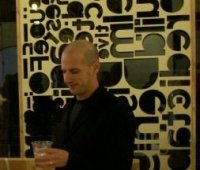
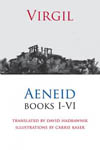
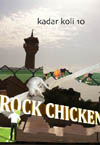
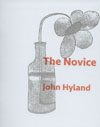
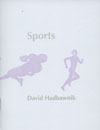
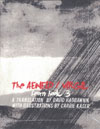
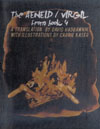
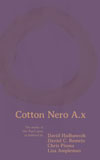
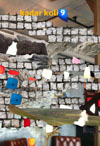
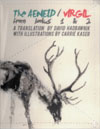
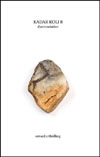
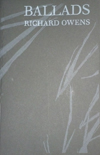
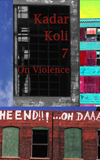
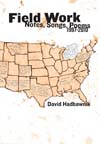
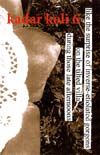
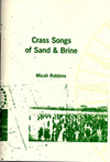
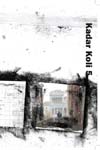
Blake was known to get into fist fights in the street over these child slaves, that is, shouting them down and then physically attacking their owners. This could be mere legend, but I remember it from an undergrad course I took featuring Blake.
those longer works are so daunting to me that I’ve yet to make any considerable ground in them. They’re so long (length and their lines) that it leaves me gasping for the shorter lyrics and the pithy Marriage of Heaven and Hell stuff.
interesting. it certainly seems plausible, given his cantankerousness, that he’d be out fighting in the streets and raising hell.
as for the epics and prophecies, it’s been useful to me — with my limited background in jung and interest in “dictated” poetry — to read them as a pure shot from the outside, be it an alien a la spicer or the spiritus mundi or whatever, and just sort of go with them. it’s also quite helpful to look at individual plates and take them together with the art.
but certainly the songs are wonderful, and marriage is just about the perfect book. i can see the way it’s influenced you — and clem.